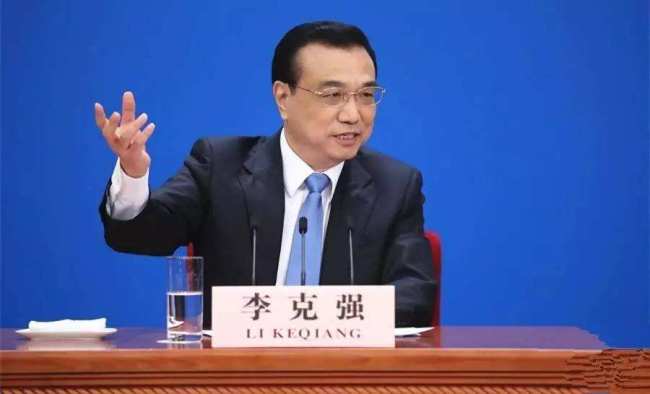China idolizes peace, seamless growth in Asia Pacific region

By Yasir Habib Khan
When it comes to uphold the supremacy of peace on international affairs, China takes a visible lead justifying its role as responsible world power to iron out all sorts of contusions especially with the US and neighboring countries in Asia-Pacific region and South China Sea.
In the light of gesture displayed by Chinese Premier Li Keqiang in his press conference after the NPC conclusion, China seems to have set a fresh tone of peaceful endeavors and seamless growth among the stakeholders shrugging off various creeping differences.
With a peace-oriented foreign policy, Chinese leadership has been striving hard to work together with neighboring countries of the Association of Southeast Asian Nations (ASEAN) instead of promoting notorious formula of “divide and rule” that reigned supreme in Cold Ward scenario.
Annual session of legislative body has also unveiled Chinese doctrine that China never wants to create a situation under which a country will have no option other than throwing a weight behind one power to other closing chapter of hegemony once for all.
It is true that there are disagreements between China and ASEAN members but mutual growth supersedes all. Last year China-ASEAN marked 25th anniversary of their bilateral trade and economic cooperation. Being a largest trading partner with ASEAN for many consecutive years, trade has blossomed at an annual rate of 18.5 percent.
In 2010, China and ASEAN formed a free trade area — or FTA — that paves a way for “zero tariff” trading. The two sides inked an agreement to expand trade in the FTA in 2015, targeting $1 trillion in total bilateral trade by 2020.
There is no doubt that China gives value to ASEAN and it is reflective of views shared by Chinese Premier Li with media that "As China's neighborhood diplomacy priorities ASEAN, we stand with it through thick and thin working together for progress and peace in the region”
Meanwhile, Chinese President Xi Jinping always gives prominence to China's neighborhood diplomacy putting great thrust on maintaining peace and security, linking development strategies, conducting security cooperation and consolidating people-to-people friendship.
Since with great power comes great responsibility, emerging super power “China” has never fallen prey of any provocations that may flare up flames of disputes. In order to quell the turbulence in South China Sea, China and ASEAN has successfully outlined the draft of a Code of Conduct (COC). ASEAN in chair with Philippines is hopeful to reach final agreement by the end of 2017. Chinese Foreign Minister Wang Yi also termed it a diplomatic success.
On diplomatic front, China-US tension runs high always. The pre and post Trump scenario are highly inflammable. US newly elected President Donald Trump and his team breathes fire against China allegedly painting its role as tyrant and mischief monger.
The construction of lighthouses, weather forecasting systems, fisher shelters and rescue facilities on Chinese islands are being feared as Chinese influence in South China Sea. US hardliners have also been accusing China for its brief defense adjustment on its islands. Instead of playing a due role of peacemaker, US intensified surveillance of China to fulfill its dream of hegemony in East Asia.
Under volatile circumstances, all praise for Chinese leadership which did not lose the temper. Even during the press conference held by Chinese Premier Li, questions were hurled to provoke China against US, but premier took everyone by storm when said that both China and US have been cherishing cooperation with each other in Asia pacific region since long and they believe in deepening their common area of interests stretching out all limits of cooperation.
His claim that many US companies place their Asia-Pacific headquarters in China carried weight.
These are facts that various American companies from Apple to Ford Motor to Nike to HJ Heinz to the Gap are expanding in Chinese mainland. Starbucks and Coca Cola, General Motors and Volkswagen have invested billions in China.
According to recent priorities set by the US-China Business Council (USCBC), Mark Fields, president and chief executive officer, Ford Motor Company, said: “The United States and China should go hand in hand to attain the shared goals of bilateral relationship to fulfill the potential for growth and success in both countries. USCBC President John Frisbie said, “The American business community is a partner to both governments in achieving the shared goal of tangible progress in the coming year.
Against all odds, China tries to deescalate tension when Premier said that China and the United States have been negotiating deeply on meeting between Chinese President Xi Jinping and his US counterpart Donald Trump.
Showing gesture of responsible country, China makes it loud and clear once again in the post activities of two sessions that ultimate peace and development hinge in China-US relationship.
(The author is a senior investigative journalist working for The News International, Daily Times, Pakistan Today and Centerline Magazine in Pakistan.)






